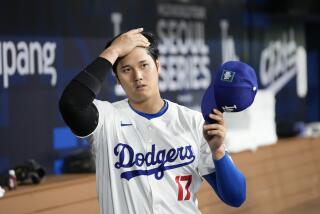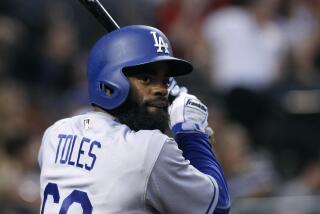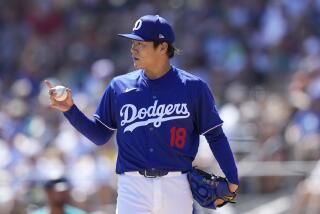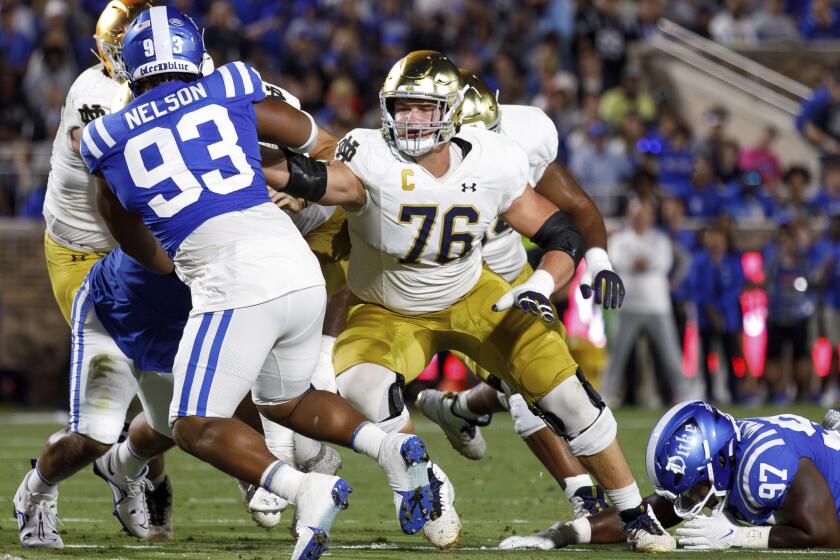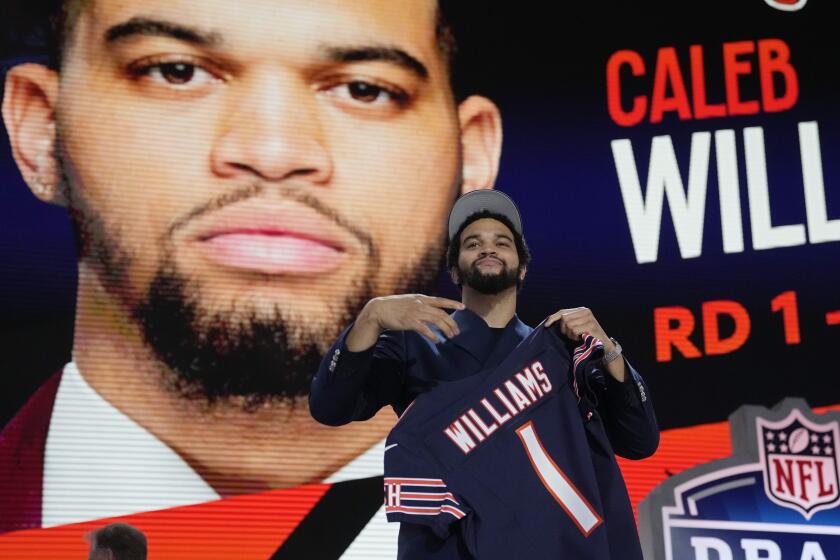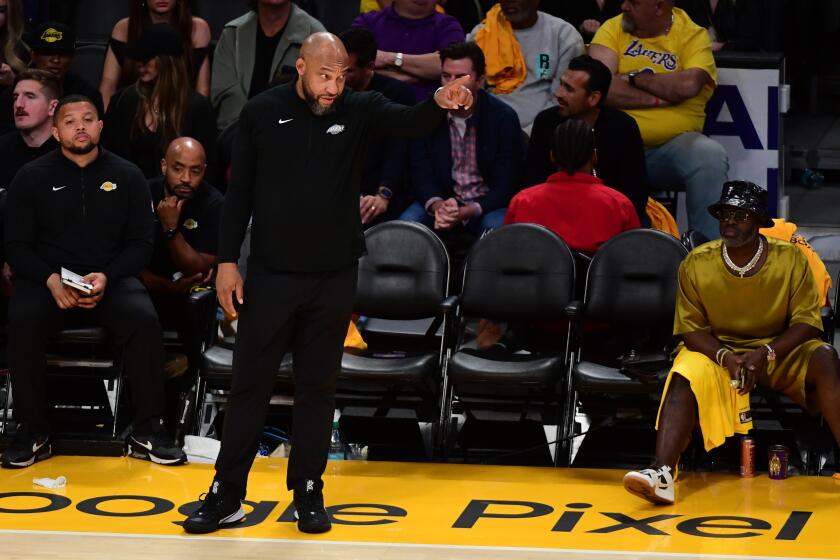Dodgers’ Hong-Chih Kuo goes on disabled list with an anxiety disorder
Reporting from Pittsburgh — The Dodgers have an idea when Rafael Furcal will be back. The same is true of Casey Blake.
But asked whether the latest key player to land on the disabled list would return this season, Manager Don Mattingly replied, “It’s hard for me to answer that.”
Hong-Chih Kuo’s ailment isn’t physical.
The Dodgers put the All-Star reliever on the disabled list because of an anxiety disorder, making the move before a 2-0 victory over the Pittsburgh Pirates on Wednesday. Kuo was replaced on the active roster by left-hander Scott Elbert.
Kuo’s problems are related to the “yips,” or sudden loss of control, that cost him three months of the 2009 season.
“He didn’t feel like he could do it,” Mattingly said.
The 29-year-old left-hander from Taiwan, who posted a franchise-record 1.20 earned-run average last season, has an 11.57 ERA and has walked six batters in 42/3 innings.
Back problems, which coincided with the resurfacing of command issues, landed Kuo on the disabled list April 16. Since he was activated May 1, he has recorded six outs in five appearances.
Kuo told trainer Stan Conte on Tuesday night that he felt he could not return to the mound. He later met with Mattingly.
“I don’t know what to tell him,” Mattingly said.
Kuo has had four elbow operations but has said his bout with “Steve Blass disease” two years ago was the greatest challenge he has ever faced.
“I didn’t know what was going on,” Kuo said last spring, when he first openly talked about the three months he spent on the disabled list that year.
Kuo went everywhere for answers. He listened to teammates and coaches. He visited a couple of sports psychologists. He went to the Dodgers’ spring-training facility, where he once misfired a pitch during a bullpen session and hit a trainer in the neck. The trainer was walking across an adjacent practice field.
Thinking Kuo might never pitch again, General Manager Ned Colletti acquired another left-hander, George Sherrill.
Kuo credited his recovery to a new approach.
“I tried to enjoy it again,” he said. “Don’t try to go out and be perfect. If you love the game, you can play.”
Kuo finished the 2009 season with a 3.00 ERA, including a 1.93 ERA over his final 21 games.
He was even better last season.
He became the first player from Taiwan to make an All-Star team, holding left-handed hitters to a .095 average. When Jonathan Broxton foundered in the second half of the season, he replaced him as the closer.
Kuo’s performance earned him a significant raise, as he and the Dodgers avoided salary arbitration by settling on a one-year, $2.725-million contract. Kuo won’t be eligible for free agency until after the 2012 season.
But remaining on the field has been no simple matter.
Whether or not he pitched, Kuo threw every day to strengthen his elbow. On game days, he was often in the training room by 1 p.m. to receive treatment, sometimes beating the medical staff to the ballpark. He is affectionately called “the Cockroach” by the trainers, who stand on the top step of the dugout whenever he pitches.
“He’s got so much respect in the clubhouse for what he’s done,” Mattingly said.
While Mattingly said Kuo could be out for an extended period of time and that he didn’t have a timetable for his return, he thought he would pitch again one day.
“Yeah, I do,” Mattingly said.
Kuo returned to Los Angeles on Wednesday. He will be shut down indefinitely.
Colletti declined to comment on the situation.
Mattingly said the Dodgers are unsure of what’s next for Kuo.
“I really don’t know,” Mattingly said. “From our standpoint, you just feel for the guy.”
Hiroki Kuroda also expressed concern. Kuroda said he had several conversations with Kuo in recent weeks.
As a high school and college pitcher in Japan, Kuroda had similar problems. Kuroda said his command issues became so severe in high school that his coach wouldn’t use him in games.
“When I threw batting practice, the hitters wouldn’t even swing,” Kuroda said.
He said he isn’t sure how he overcame that mental hurdle.
“There are things only he knows,” Kuroda said of Kuo. “It’s not the same for everyone. Everyone deals with it differently.”
More to Read
Get our high school sports newsletter
Prep Rally is devoted to the SoCal high school sports experience, bringing you scores, stories and a behind-the-scenes look at what makes prep sports so popular.
You may occasionally receive promotional content from the Los Angeles Times.
